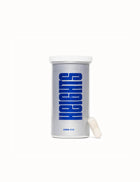
Biotic⁺

Got a discount code? Add it in the next step.
4.8/5 based on 6,169+ reviews
What are the 5 worst foods for memory? How to hang onto your memories and stay mentally sharp.

What you put in your body will have an impact on your brain— that's what Heights is all about . When it comes to memory, there isn't a miracle diet that will automatically prevent cognitive decline. However, there are certain foods to avoid that are bad for your brain—so what are the worst 5 foods for memory, and why should you avoid them?
Processed meats such as chicken nuggets, bacon, sausages, and ham are known to be harmful for your brain. The reason for this is that processed meat contains high levels of nitrites and nitrates, as well as high levels of fat.
Refined carbohydrates like white rice, white bread, pasta, and cookies have been processed and stripped of its fibre, vitamins, minerals and other nutrients— so basically all the good stuff . A 2016 study found that people who ate a diet high in refined carbohydrates were more likely to have poorer memory and brain function than those whose diets included whole grains.
Refined carbohydrates also spike your blood sugar and insulin levels, which can lead to a number of health problems. Refined carbohydrates generally lack the nutrients required by our bodies to stay healthy and maintain an optimal level of brain function , so it's better to opt for whole grains instead.
Ready-made meals are another food category to be wary of if you're looking to support your memory. They're often high in salt, fat and sugar, all of which can have damaging effects on your brain.
Salt can cause high blood pressure which damages the brain by causing it to swell and lose its ability to form new connections between cells (neurogenesis).
Processed foods may contain other harmful substances that are not listed on their labels such as artificial sweeteners like sucralose, benzoate preservatives like potassium benzoate, modified starch containing acrylamide, or monosodium glutamate (MSG). These chemicals can cause damage to your brain cells and can lead to memory loss, so it’s important to eat a diet rich in fruits, vegetables and whole grains, which will help keep your blood sugar levels stable and support your brain function.
The worst thing you can do to your body is to drink a lot of sugary drinks—they're high in calories, and low in nutritional value. They also contain large amounts of refined sugars that have been linked to reduced brain function , which can cause problems with memory and focus.
One 20-ounce bottle of a regular fizzy drink contains about 160 calories and 39 grams of sugar—that's almost as much sugar as you'd find in five chocolate bars. Consuming this much sugar could impact your memory and can make you feel tired, irritable, and distracted.
So to support your healthy brain functioning and memory, swap out your fizzy drinks for plenty of water—you could opt for the odd tea or fruit juice too.
Trans fats are a type of unsaturated fat that has been processed to make it more solid, so it can be used in margarines and other spreads, as well as some cheeses, cakes, biscuits, and pastries. Trans fats have been proven to raise your ‘bad’ cholesterol levels, which can impact your heart health.
When it comes to memory, trans fats are some of the most damaging foods you can eat . A new study from UCLA has shown that eating high amounts of trans fats may harm your brain health, potentially leading to issues with memory.
You can avoid trans fats by checking food labels and selecting products that contain no partially hydrogenated oils or shortening. You can also avoid foods with words like “hydrogenated” or “partially hydrogenated” on their ingredient list.
Foods that cause brain fog can be very different for everyone. However, the most common culprits include alcohol, caffeine and refined sugars. Alcohol can suppress your ability to think clearly, while large amounts of caffeine may also cause you to feel jittery or tense. Refined sugars are quickly absorbed into the bloodstream and provide quick energy—but they don’t offer any lasting benefits.
The best food to support memory is a balanced diet. Fruits and vegetables contain many nutrients that help support your brain, including antioxidants and vitamins A, C and E. Whole grains are also good sources of B-vitamins and magnesium—both important for healthy brain cells. Lean proteins like fish, poultry and low-fat dairy products have omega-3 fatty acids that support healthy ageing.
There’s plenty of foods you should be eating to maintain your memory, but these 3 are by far the best at nourishing your memory-making skills:
Oily fish: Salmon and mackerel are some of the best sources of omega-3 fatty acids.
Dark green vegetables: Green vegetables such as broccoli and spinach contain vitamin K, which is essential for healthy brain function.
Walnuts: These humble nuts contain nutrients such as magnesium, zinc and vitamin E which can help maintain your memory power.
Maintaining a healthy diet is crucial for maintaining a healthy brain, and a robust memory.
The average brain health score is 51/100. Take our 3-minute quiz to learn how yours measures up and how to boost it.